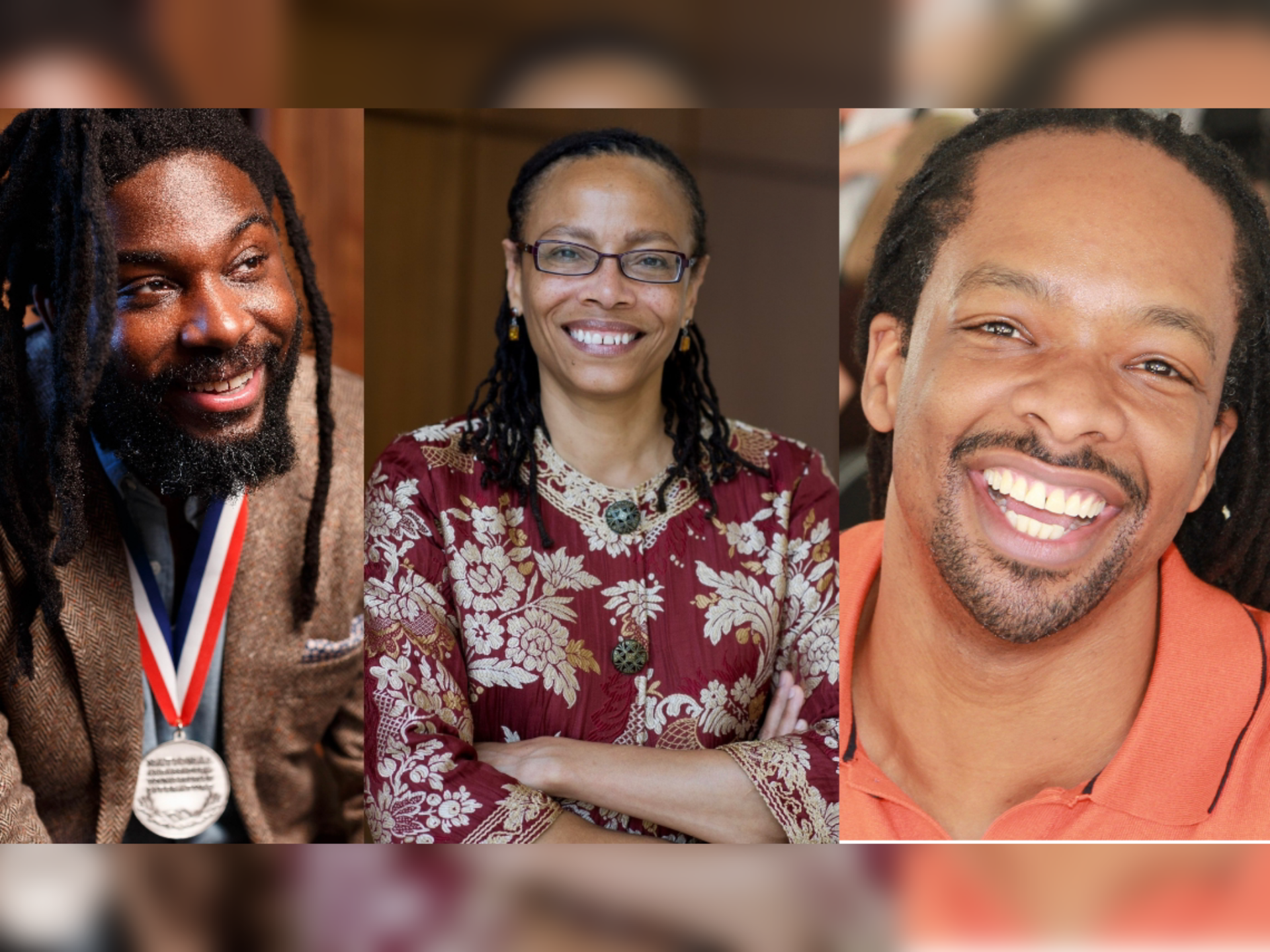
October 4, 2024
Jason Reynolds, Dorothy Roberts, And Jericho Brown Among 2024 MacArthur Foundation’s ‘Genius’ Grant Winners
Eight Black trailblazers made the MacArthur Foundation's 2024 list of 'Genius' grant winners.
On Tuesday, the MacArthur Foundation unveiled its 2024 “Genius” grant winners. Eight Black trailblazers were awarded the $800,000 stipend.
Among the recipients were Dorothy Roberts, a legal scholar and public policy researcher focused on racial inequities in social services; poet Jericho Brown; and dancer/choreographer Shamel Pitts.
Each fellow is initially proposed for consideration by a group of anonymous nominators and subsequently recommended to the foundation’s president and board by an independent selection committee. Since its 1981 inception, over 1,100 recipients have received the fellowship, commonly referred to as the “genius grant.”
For Dorothy Roberts, 68, an author and professor at the University of Pennsylvania’s law school, receiving the honorary grant reflects the appreciation many have for her work, even when it tackles subjects considered inappropriate by some scholars, such as the prosecution of pregnant Black women for drug use.
“I started this work in 1988,” Roberts told The New York Times. “To get this kind of recognition is very gratifying. Not only for me personally, but for all the people, especially Black women, who’ve been devalued in these systems.”
Shamel Pitts’ work founding and leading the multidisciplinary artist collective Tribe caught the attention of enough people who anonymously nominated him for the grant.
Tribe’s work as a collective of wide-ranging artists resembles world-building by seamlessly integrating spatial, lighting, and sound design elements with the dancers’ movements to produce immersive multi-sensory experiences that captivate audiences. With a special focus on representing the African diaspora, Tribe has a commitment to working toward a future free from the constraints of historical oppression.
“I hope my work promotes feeling, provokes thought, and proclaims the irresistibility of liberation, pleasure, and revolution from, through, and beyond our bodies,” Pitts said.
Jericho Brown’s poetry reinvents familiar poetic forms and rhythmic patterns to intensify its emotional impact. Through his three collections, Brown, 48, delves into themes of masculinity, spirituality, family, sexuality, and racial identity, using inspiration from personal experiences and influences from American pop culture.
“The best way to describe my work is to say I write what humans of every society all over the world historically need. I write what the spirit reads,” Brown said.
Ruha Benjamin, 46, a transdisciplinary scholar and writer, earned her grant for “illuminating how technology reflects and reproduces inequality and championing the role of imagination in social transformation,” the Foundation said. Through integrating critical analysis of innovation and focusing on the potential for positive change, Benjamin highlights the vital role of imagination and grassroots activism in influencing social policies and cultural practices.
Tony Cokes, 68, was awarded for his contributions as a media artist. He produces video works that reinterpret historical and cultural moments. By sampling and recombining textual, musical, and visual fragments, he emphasizes how dominant narratives from our oversaturated media landscapes reinforce existing power structures.
Historian Jennifer L. Morgan, 58, is a Fellow committed to enhancing our understanding of how race-based slavery emerged in early America. She sheds light on the experiences of enslaved African women during the sixteenth and seventeenth centuries.
Ebony G. Patterson, 43, is a multimedia artist based in Chicago, originally from Kingston, Jamaica. She creates intricate, richly layered, and visually captivating works that focus on the culture and aesthetics of postcolonial spaces. Her artistic practice encompasses painting, photography, video, performance, sculpture, textiles, and installation, addressing themes such as visibility and invisibility, regeneration, and mourning in postcolonial contexts.
Children’s and young adult author Jason Reynolds, 40, was named a fellow for his work capturing the rich inner lives of kids of color and creating powerful moments of human connection in his books. His writing addresses a gap he felt growing up as a Black boy in Oxon Hill, Maryland, where he rarely saw his community represented in the literature promoted at school.
Reynolds’ books blend humor, joy, and playfulness while addressing the harsh realities of racism, economic inequality, police brutality, and grief. His characters navigate friendships, uncover talents, make mistakes, seek forgiveness, confront fears, and care for parents battling cancer.
RELATED CONTENT: Levi’s Jeans Now All The Rage With Stock Price Rising Due to Beyoncé’s New Song